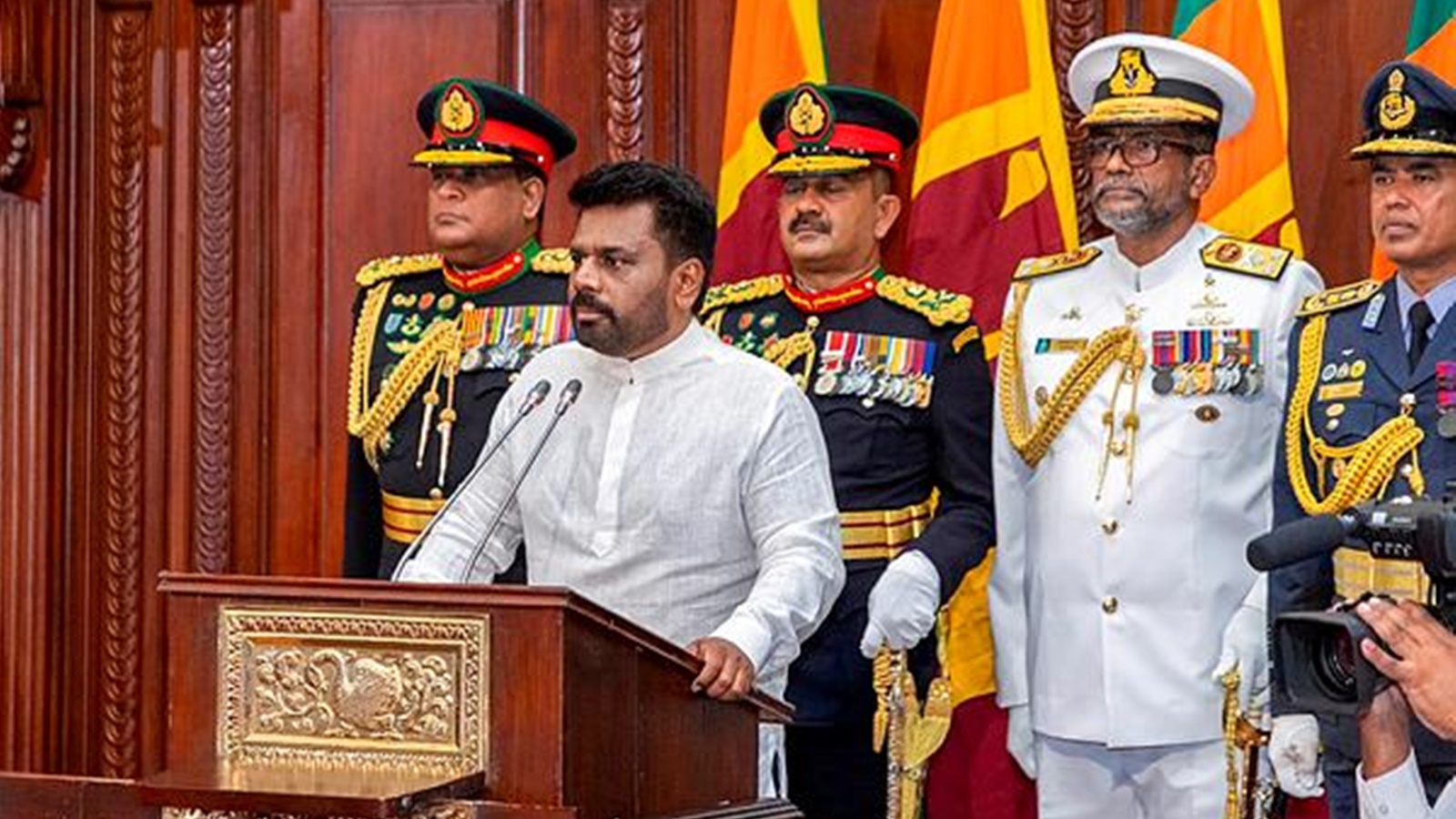The anticipated election of the National People’s Power leader, Anura Kumara Dissanayake (AKD), as President of Sri Lanka, brings out a massive change in India’s neighbouring country.
It is to the credit of Sri Lanka that after the popular uprising of 2022, they stabilised their political system as per the Constitution, did not dissolve parliament early, let the unity government stabilise the economy and held elections on time. The results of these elections are unprecedented, and yet the election was without violence.
AKD won 42 per cent of the vote compared to the 3 per cent he won in the last elections in 2019. Yet, he is the first Sri Lankan president to be elected with a minority vote; since he could not reach the 50 per cent mark in the first round, this led to the counting of second and third preference votes. Though he did not win the battle of preference votes, his first-round lead of 10 per cent over Sajith Premadasa was enough, because once the second round commences, there is no stipulation to attain 50 per cent and the leading vote-getter wins.
The NPP is a coalition of interest groups around the left-wing Janatha Vimukthi Peramuna (JVP). The JVP was traditionally an anti-capitalist nationalist movement with an anti-Indian focus. Does this mean that AKD’s victory could be a cause for concern for India?
Since 2000, the NPP’s approach has changed. They are not revolutionaries now, except in thought, and don’t believe in violence. They participate in the democratic process. In the Chandrika Kumaratunga government, AKD was a Minister for Agriculture. However, the NPP’s journey in Parliament has not been even and they could not adequately grasp the popular sentiment.
In the last elections, the NPP could get only two elected MPs and one MP on the national list. Now, it is these three MPs, with AKD as President, Harini Amarasuriya as Prime Minister, and Vijita Herath as a minister, who will carry the party towards the parliamentary election, likely to be held by the end of this year.
The NPP is a wider collection of interest groups, like artists, business people, academics and most potently, women’s groups, who want a change from the traditional parties and their discredited and corrupt ways. Voicing the people’s concerns and ridding the country of cronyism and corruption are perhaps its strongest planks.
Yet, it is also faced with the task of economic stabilisation and coping with the IMF Extended Finance Facility, which still has two and a half years to run. Therefore, the NPP needs a balanced approach.
Amarasuriya has been a leading light of the NPP, giving it an educated, articulate face which is highly respected, compared to AKD’s Sinhala-based charisma. The two of them together are great foils to each other.
What is their relationship with India? AKD has said that he is not anti-Indian. He visited India earlier this year on invitation and met with the External Affairs Minister, the National Security Advisor, and others. He has been prompt in responding to PM Modi’s congratulatory message and promised to work together. The Indian High Commissioner in Colombo was among his first visitors after his election.
In a television debate, he had indicated that he was not against India, and he acknowledges that India has supported Sri Lanka at a critical time in 2022 with a massive infusion of finance and materials. He has, however, said that environmental concerns will determine his approach towards a renewable energy plant in the North, which has been allocated to Adani Power. This should not be read as an anti-Indian move, because environmental groups, which are an important part of the NPP, are concerned about this project and demand action.
Amarasuriya graduated from Hindu College in Delhi University before going on to higher degrees in the UK and elsewhere. She is a well-respected civil society activist and academic and can in no way be considered anti-Indian.
In India’s neighbourhood, most elections see an anti-India sentiment, provoked by nationalist parties to garner votes. This time, in Sri Lanka, this has been at a low ebb. Most analysts say that India has not been a negative factor in campaigning as most Sri Lankans at present appreciate India’s timely help in 2022. India has been a willing partner to Sri Lanka’s debt restructuring, unlike China.
The EAM and NSA have both met with AKD on their visits to Sri Lanka and in India. It is quite likely that India’s concerns regarding China would have been conveyed. In general, India would like a level playing field for economic projects in Sri Lanka and not be denied simply because China is a competitor. India and Japan, for instance, could trilaterally deal with Sri Lanka effectively.
With regard to Indian security concerns, the regular movement of Chinese naval vessels, particularly submarines and the so-called research ships, is a matter of concern to India. Since the Hambantota port is leased out to China, it has leveraged this. Intrinsically, Sri Lanka uses the China card to balance India. While India does not demand a cleavage between Sri Lanka and China, it does expect that its security concerns would be taken care of and that China would not be allowed to disrupt Indian shipping movements or use visits to Sri Lanka for spying on India.
There is much that Sri Lanka can gain from continuing integration with India’s growing economy. India, as the fastest-growing large economy in the world, has more to offer Sri Lanka at present. It is for Sri Lanka to grasp the continuing hand of friendship that India has offered, and not squeeze or bite it. India respects Sri Lanka’s decision to change its leadership, and will not take sides among political parties.
The writer is former ambassador to Germany, Indonesia and ASEAN, Ethiopia and the African Union



